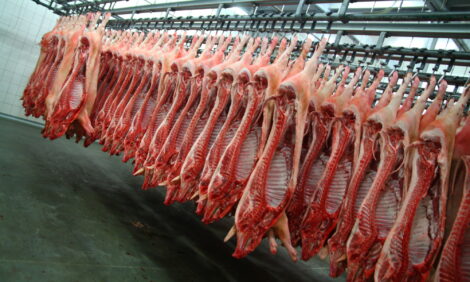



Treating Pneumonia & managing respiratory disease for the long term
A case study from Noel Kavanagh in Ireland looking at the challenge of respiratory disease to growing pigs, and the benefits of using Pulmotil ® to control a serious outbreak of pneumonia on a 500-sow breeder/feeder enterprise.The effects of such problems are well known to all. Sickness leading to poor feed intake soon leads to slower and less efficient growth. The increased costs associated with the need to hospitalise pigs in addition to the treatment, via injection, feed or water can be considerable. In addition the variation that respiratory conditions generate in respect of growth rates within a batch and the range that is generated in carcass weights at slaughter both have high cost implications. Then there are, of course, the costs of the almost inevitable mortalities associated with respiratory disease.
Many methods of management control have shown to assist with the crippling effects of pulmonary problems. The value of depopulation, all-in-all out stocking, improved ventilation control, sub-division of weight ranges within a building or even on a whole site, all have important parts to play in the control of these conditions.
However, where a problem flares up, the above listed management factors, being of a more strategic medium and long term nature, will need supplementary antibiotic treatment.
This requires the involvement of the unit veterinarian and a close investigation of the prevailing circumstances surrounding the problem.
An excellent example of such support comes from Ireland where veterinarian Noel Kavanagh was called to advise on a serious pneumonia outbreak on a 500-sow breeder/feeder enterprise. At the time the preliminary investigation was carried out, mortalities in first stage weaner had leapt up to 7 pigs/per week. On average, over a ten week period, almost 60 pigs/week were having to be treated by injection, 18 pigs removed to hospital pens and 26 pigs each week were showing signs of low thrift - all this on a unit producing over
200 weaners/week. Regular veterinary visits to the unit, quarterly visits being made over six years, had not previously suggested the presence of serious respiratory disease. However, post-mortem and slaughterhouse check rapidly lead to the diagnosis of (Actinobacillus pleuropneumonia) (APP Type 2).
Having obtained diagnosis, a programme to use Pulmotil® medication was instituted.
Although the effects of APP infection were apparent throughout the herd, high levels of coughing, poor body condition and mortality were most apparent, in the first stage weaners. Thus, a programme was drawn up to focus the use of Pulmotil in the diets for the early post-weaning periods. In addition sows in the farrowing house received Pulmotil from two days prior to farrowing for two weeks. This was discontinued once sufficient immunity was acquired from a sow vaccination programme.
The creep/weaner diet had 400ppm Pulmotil® included and the link diet at the lower rate of 200ppm.
The impact of the programme was as dramatic as it was cost-effective. Almost immediately mortality in the first stage weaners fell from 7 pigs/week to just over 1/week. On average the number requiring treatment fell from 60 to less than 10. Those requiring removal to hospital pens fell to 2/week instead of 18 and no ill-thrifty pigs were noted. This latter point would help create more even growth and less carcass weight variation.
The impact of the medication programme to assist in the damping-down of this serious APP flare-up highlights the benefits of rapid diagnosis and development of an appropriate treatment strategy. The rapid return to normal and more even growth performance, as well as the countering of the effects of illness and the need to treat and withdraw pigs, vindicates the use of Pulmotil as highlighted in this case study.
 |
In the medium/long term other strategies need to be considered in consultation with your veterinary surgeon, and these will be depending on the conditions the unit operates under.
KEY POINTS:
- Accurate understanding of the respiratory disease picture on the unit was a prerequisite
- Integrated control programme involving management, medication and vaccination was developed with the veterinary surgeon
- The use of Pulmotil® dramatically reduced the cost of respiratory disease in the short term
- The use of Pulmotil® in the short term gave the producer time to implement a longer term health plan that gave long term disease stability
Pulmotil ® is a trademark for Elanco's brand of tilmicosin. Usage instructions and withdrawal periods may vary by Country. Always follow label instructions.









